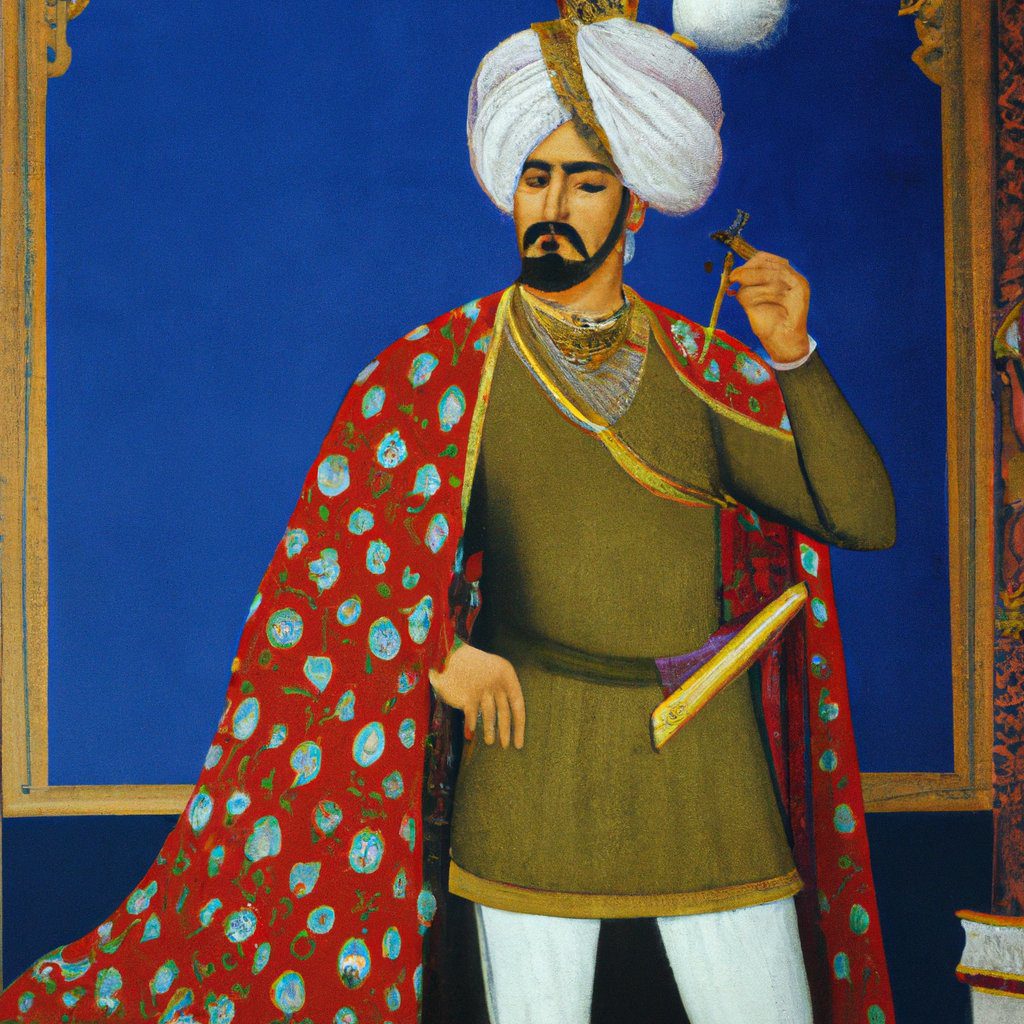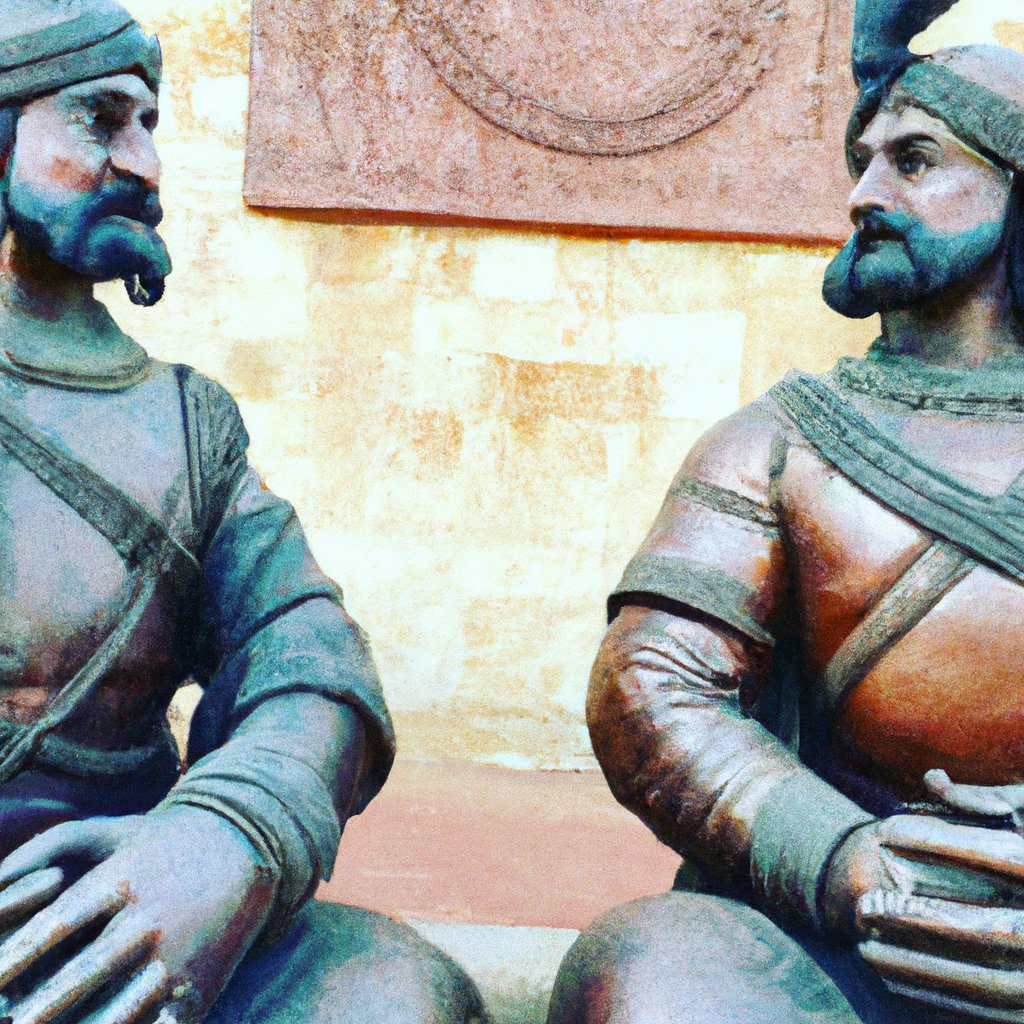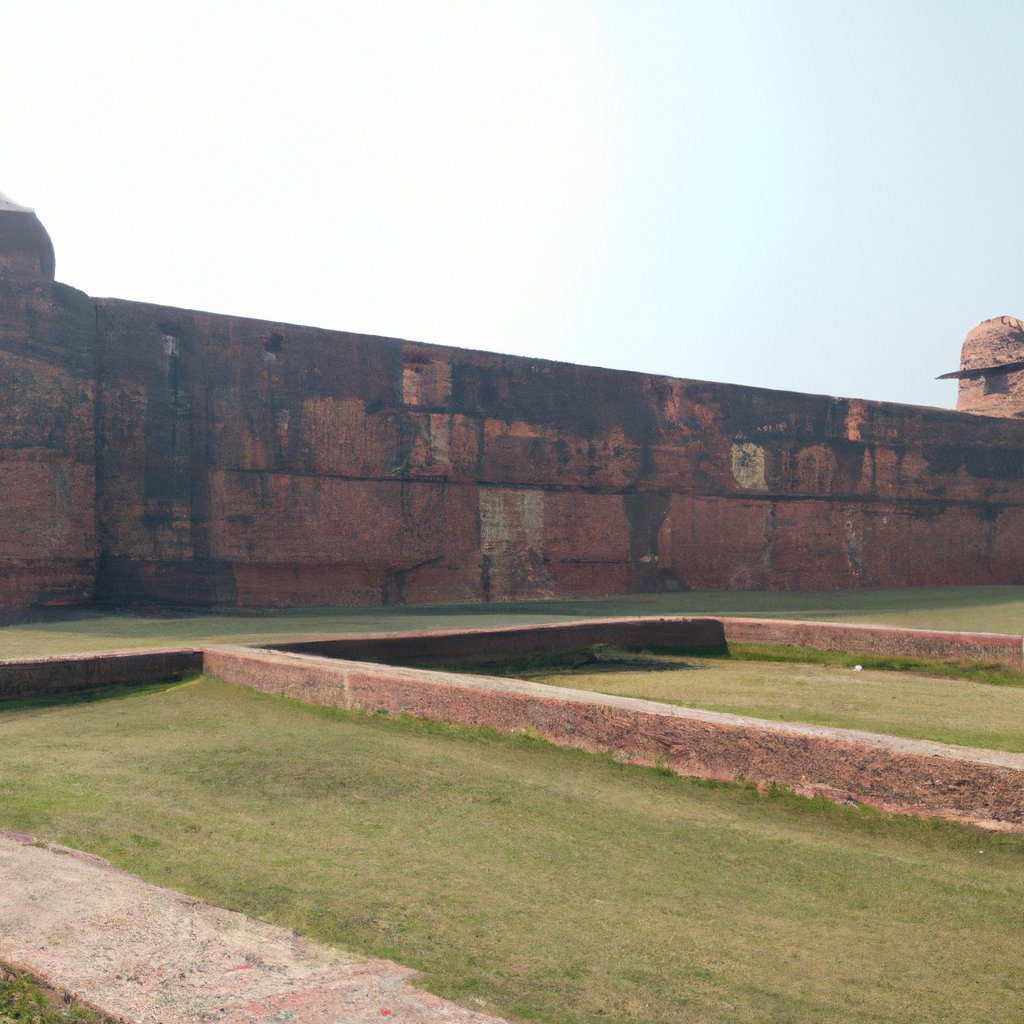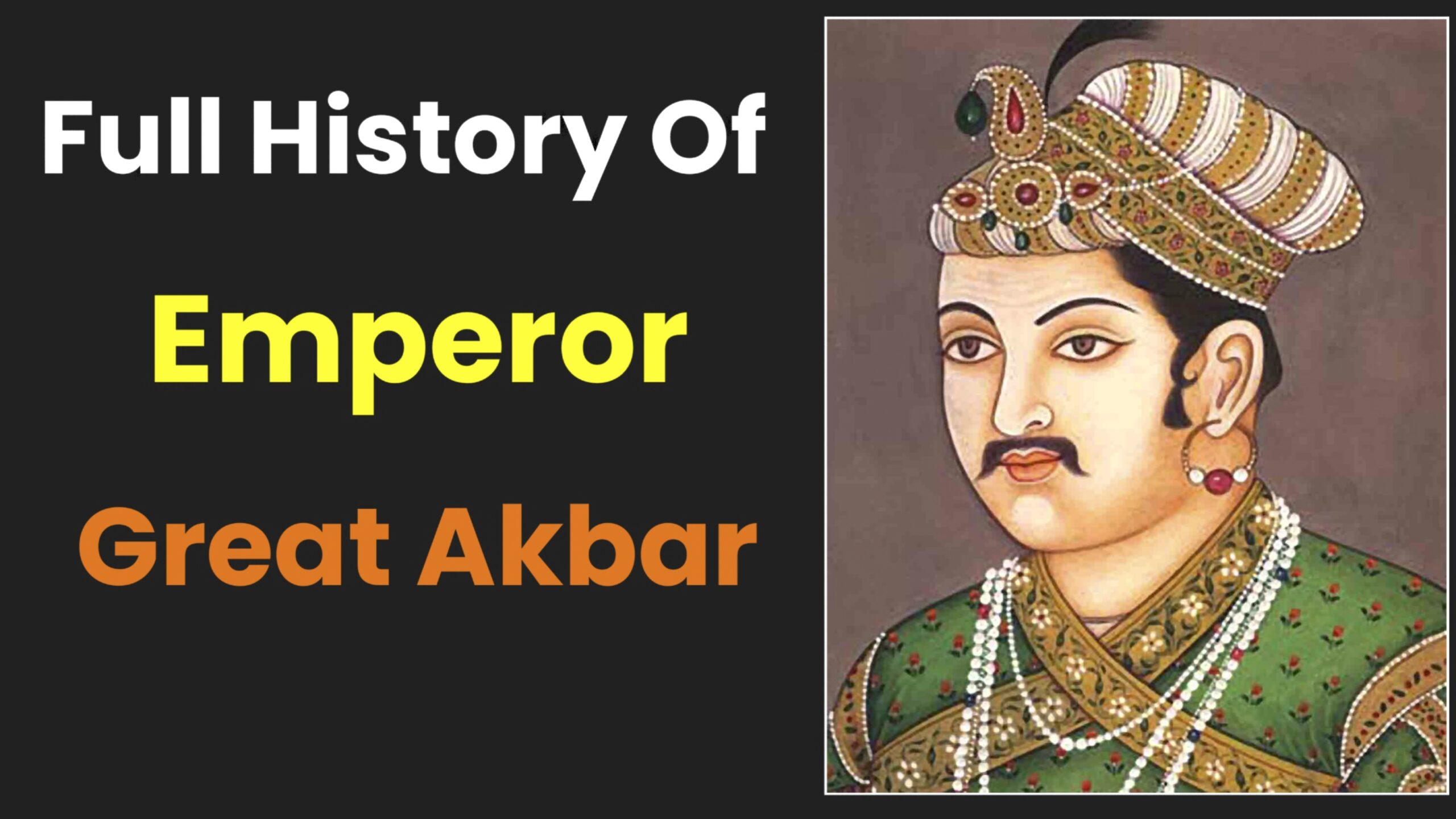Who Was Emperor Akbar

Emperor Akbar, also known as Akbar the Great, was a Mughal emperor who ruled over the Indian subcontinent from 1556 to 1605. He was the third emperor of the Mughal dynasty, succeeding his father Humayun.
Akbar is widely regarded as one of the greatest emperors in Indian history, known for his religious tolerance, administrative reforms, and patronage of the arts and sciences. He expanded the Mughal Empire to include much of the Indian subcontinent, and his reign is considered a high point in the cultural, artistic, and intellectual life of India.
During his rule, Akbar implemented a number of policies aimed at fostering religious tolerance and social harmony, including the abolition of the jizya tax on non-Muslims, the establishment of a new religion called Din-i-Ilahi that blended elements of Islam, Hinduism, and other faiths, and the creation of a multicultural court that included scholars, poets, musicians, and artists from many different backgrounds.
Akbar’s legacy continues to be felt in India today, and he is remembered as a visionary ruler who helped to shape the course of Indian history.
How and where was Emperor Akbar born?
Emperor Akbar was born on October 15, 1542, in the fortress of Umerkot in present-day Pakistan. His father, Humayun, was the second emperor of the Mughal dynasty, and his mother, Hamida Banu Begum, was a Persian princess.
At the time of Akbar’s birth, his father was in exile and facing numerous challenges to his rule. The young prince and his mother were forced to flee the fortress of Umerkot soon after his birth, and they spent several years wandering in the desert before being reunited with Humayun and the Mughal court.
Despite these early difficulties, Akbar grew up to become a skilled warrior and a visionary ruler who transformed the Mughal Empire into one of the greatest powers of the time. He was known for his keen intellect, his love of learning, and his ability to bring people of different cultures and religions together in a spirit of harmony and cooperation.
Where was Akbar the king?
Akbar was the king and emperor of the Mughal Empire, which was located in the Indian subcontinent. He ascended to the throne in 1556 at the age of 13, following the death of his father, Humayun. Akbar ruled over a vast territory that encompassed much of present-day India, Pakistan, and Bangladesh, as well as parts of Afghanistan and Iran.
During his reign, Akbar established his capital at Fatehpur Sikri, near the city of Agra in present-day Uttar Pradesh, India. He also undertook a series of military campaigns to expand the empire’s territory, and he was successful in conquering much of northern and central India. In addition to his military conquests, Akbar is also remembered for his administrative reforms, his promotion of religious tolerance, and his patronage of the arts and sciences.
Full story of Akbar Badshah?
Akbar Badshah, also known as Akbar the Great, was the third Mughal emperor of India, who ruled from 1556 to 1605. He was born in Umerkot, Sindh (present-day Pakistan) in 1542, and ascended to the throne at the age of 13, following the death of his father, Humayun.
As a young emperor, Akbar faced numerous challenges to his rule, including rebellions by his half-brothers and rival claimants to the throne. However, he was able to consolidate his power and establish himself as a visionary leader who transformed the Mughal Empire into one of the greatest powers of the time.
One of Akbar’s key accomplishments was his administrative reforms, which included the creation of a centralized government with a complex system of revenue collection, land grants, and taxation. He also instituted a policy of religious tolerance, which was a major departure from the policies of his predecessors, who had persecuted non-Muslims. Akbar abolished the jizya tax on non-Muslims, and invited scholars from different religions to his court to promote interfaith dialogue and understanding.
Another significant aspect of Akbar’s reign was his patronage of the arts and sciences. He created a multicultural court that included scholars, poets, musicians, and artists from many different backgrounds, and commissioned a number of architectural masterpieces, including the Red Fort in Agra and the city of Fatehpur Sikri.
In addition to his cultural and administrative accomplishments, Akbar was also a skilled military commander who undertook a series of successful campaigns to expand the Mughal Empire’s territory. He conquered much of northern and central India, as well as parts of present-day Pakistan, Afghanistan, and Iran.
Akbar died in 1605, and was succeeded by his son, Jahangir. He is remembered as one of the greatest emperors in Indian history, and his legacy continues to be felt in India today.
Who defeated Akbar?
Akbar was not defeated by any external power during his reign as the Mughal Emperor of India. In fact, Akbar was a highly successful military commander who conquered and consolidated much of northern and central India, as well as parts of present-day Pakistan, Afghanistan, and Iran.
However, Akbar did face a number of internal challenges to his rule, including rebellions by his half-brothers and rival claimants to the throne. He was able to overcome these challenges and establish himself as a visionary leader who transformed the Mughal Empire into one of the greatest powers of the time.
After Akbar’s death in 1605, his son Jahangir succeeded him as the Mughal Emperor. Jahangir faced a number of rebellions during his reign, including a major uprising led by his own son, Prince Khusrau. However, Jahangir was ultimately able to suppress these rebellions and maintain his hold on power.
Why was Akbar great?
Akbar is considered great for several reasons, including his administrative and military reforms, his promotion of religious tolerance, and his patronage of the arts and sciences.
Firstly, Akbar introduced a number of administrative reforms that helped to centralize the Mughal Empire’s government and create a more efficient system of governance. He reorganized the imperial bureaucracy and introduced a system of standardized weights and measures. He also introduced a revenue system based on land measurement and taxation that helped to increase the empire’s wealth and power.
Secondly, Akbar’s policy of religious tolerance was a significant departure from the policies of his predecessors, who had persecuted non-Muslims. He abolished the jizya tax on non-Muslims and invited scholars from different religions to his court to promote interfaith dialogue and understanding. This policy of religious tolerance helped to promote peace and stability in the empire and paved the way for a more pluralistic society.
Thirdly, Akbar was a skilled military commander who undertook a series of successful campaigns to expand the Mughal Empire’s territory. He conquered much of northern and central India, as well as parts of present-day Pakistan, Afghanistan, and Iran. His military conquests helped to consolidate the empire’s power and make it one of the greatest powers of the time.
Finally, Akbar was a patron of the arts and sciences and created a multicultural court that included scholars, poets, musicians, and artists from many different backgrounds. He commissioned a number of architectural masterpieces, including the Red Fort in Agra and the city of Fatehpur Sikri, which are still admired today for their beauty and grandeur.
Taken together, these accomplishments make Akbar one of the most celebrated figures in Indian history and earned him the title of “Akbar the Great.”
Who killed Akbar?
Akbar died of natural causes on October 27, 1605, at the age of 63. There is no evidence to suggest that he was killed by anyone. It is believed that he suffered from a bout of dysentery and fell ill, which ultimately led to his death. His body was buried in a mausoleum in Sikandra, near Agra, which is still a popular tourist attraction today.
How many years did Akbar rule India?

Akbar ruled India for a period of 49 years, from 1556 to 1605. During his reign, he transformed the Mughal Empire into one of the greatest powers of the time, and his legacy continues to be felt in India today.
Who was stronger between Akbar and Maharana Pratap?

It is difficult to compare the strength of Akbar and Maharana Pratap directly as they were both powerful rulers in their respective regions. Akbar was the Mughal emperor and controlled a vast empire that included most of northern India, parts of central India, and parts of present-day Pakistan and Afghanistan. He had a powerful army and was known for his military tactics and administrative skills.
Maharana Pratap was the ruler of Mewar, a region in present-day Rajasthan. He is known for his valiant efforts in defending his kingdom against the Mughal army led by Akbar. Although Maharana Pratap was not able to defeat the Mughals, he never surrendered and continued to fight for the independence of his kingdom. He is regarded as a symbol of bravery and patriotism in Indian history.
Both Akbar and Maharana Pratap had their own strengths and achievements. While Akbar was known for his military conquests, religious tolerance, and administrative reforms, Maharana Pratap is remembered for his bravery and refusal to submit to the Mughal empire.
Akbar Battle of Panipat

The Battle of Panipat refers to three major battles that were fought near the town of Panipat, in present-day Haryana, India. The first battle, which was fought in 1526, marked the beginning of the Mughal Empire in India. The second battle was fought in 1556 between Akbar’s father Humayun and the Pashtun warrior king, Hemu. The third battle of Panipat was fought in 1761 between the Maratha Empire and the Durrani Empire led by Ahmad Shah Durrani.
Akbar did not personally fight in the Battle of Panipat as it took place before he was born. However, the battle had a significant impact on the Mughal Empire and on Akbar’s grandfather, Babur, who led the Mughal forces to victory in the battle. The victory of Babur’s forces over the army of the Sultan of Delhi, Ibrahim Lodi, led to the establishment of the Mughal Empire in India. The battle is considered to be one of the most important battles in Indian history, as it changed the course of Indian politics and paved the way for the Mughal rule in India.




